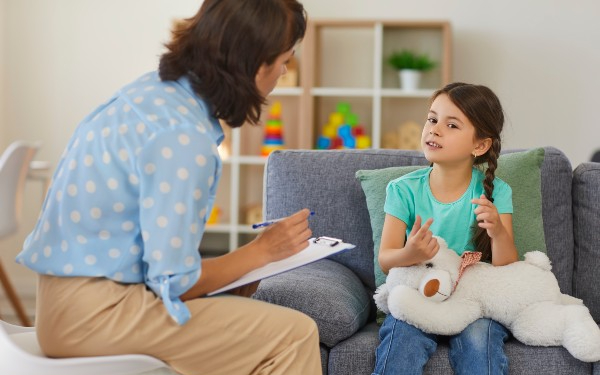
Sector bodies have voiced concerns about the future of the Adoption and Special Guardianship Support Fund (ASGSF), with the government having failed to confirm funding beyond March 2025.
Under the ASGSF, currently worth £48m a year, councils and regional adoption agencies (RAA) apply for funding for therapeutic support for adopted children, those placed with a family awaiting adoption or those who have left care under a special guardianship order (SGO) or child arrangements order (CAO).
If applications are approved, families may receive up to £2,500 per child for a specialist assessment and £5,000 per child for therapy annually, limits that can be exceeded in exceptional circumstances.
Funding lasts for up to a year, with councils and RAAs having to reapply to continue services for families. In 2023-24, almost 19,495 funding applications from RAAs and councils were approved, mostly for therapies.
Delay ‘very tough on families’
As things stand, the Department for Education, via delivery partner Mott MacDonald, will approve applications for services that start before the end of March 2025 – and extend for up to a further year – but not beyond.
“The delay in confirming funding for the ASGSF for the next financial year is very tough on families,” said charity Adoption UK’s director of public affairs and communications, Alison Woodhead.
“Thousands of children could be facing a sudden break in support, which is likely to mean many backwards steps in the difficult journeys they are on to understand and recover from their experience of trauma and loss.”
Funding ‘cliff edge’ leaves ‘uncertain future’
Woodhead referred to the fact that previous extensions to the ASGSF – for 2021-22 and 2022-25 – had been announced towards the end of the previous financial year.
She added: “This cliff edge in support every Treasury spending round can also impact the trust a child has worked hard to develop with their therapist. Waits for ASGSF funded support are already lengthy, but families waiting to start therapy are now facing an even more uncertain future.”
This warned that the uncertainty around the ASGSF was “causing much anxiety for families parenting children with complex needs” and widening gaps between children’s treatment sessions, which it described as “destabilising and wasteful”.
The same message was relayed by Ofsted in a report last year based on inspections of six RAAs. It said that uncertainty over the future funding of the scheme had prevented adopters from making long-term plans for their children’s needs.
Announcement on funding due shortly – minister
In a response to a parliamentary question, issued last week, children’s minister Janet Daby said a decision on the fund was due shortly.
“The department will shortly be finalising business planning decisions on how its budget will be allocated for the next financial year.
“All decisions regarding the Adoption and Special Guardianship Support Fund (ASGSF) are being made as part of these discussions. An announcement will be made as soon as possible.”
About the Adoption and Special Guardianship Support Fund
The programme – originally called the Adoption Support Fund – was launched in 2015 to provide therapies for children adopted from care up to age 18 (or 25 if they had a statement of special educational need or education, health and care plan). In 2016, it was extended to children (without a statement or EHCP) aged up to 21, those who left care on an SGO and those adopted from abroad, while in 2022, it was made available to those who left care under a CAO.
It can fund a range of services, including therapeutic parenting training, arts therapies, psychotherapy and extensive life story work.
Evaluations of the fund published in 2017 and 2022 found small but statistically significant improvements in the mental health of children who received support via the fund – though in the latter case this was confined to those of school age. They also noted improvements in family functioning and high levels of parent and carer satisfaction.
The number of approved applications has grown significantly in recent years, from 13,046 in 2020-21 to 19,495 in 2023-24.
‘Vital’ importance of therapies in helping children make sense of past
Children’s charity and adoption agency Coram, which hosts London-based RAA Ambitious for Adoption, stressed the “vital” importance of therapeutic services that understand the needs of children who have “faced sudden losses, being separated from their birth parents and their homes and have had additional abusive experiences within these relationships”.
Dr Anna Harris, clinical psychologist and head of Coram’s creative therapies team, said: “Often, the pain they’ve experienced is stored in their bodies and minds in ways we don’t always see. This can show up in emotional reactions, behaviors, and relationship struggles, even if they don’t have the words to explain what they are going through.
“These services provide the right support to help children make sense of their past experiences, and more importantly, help them find hope for their future.”
However, the fund has also faced criticisms.
Criticisms of support fund
Practitioners have described the administrative process as a “burden”, according to report on adoption support commissioning published by RAA support body Adoption England in November 2024.
This included completing a complicated and time-consuming application process, finding and vetting providers, handling invoices and overseeing contracts and the quality of services, the report said.
The paper also reported criticisms of the fact that funding could not be extended beyond a year, even when therapy was ongoing, and said eligibility criteria were “restrictive and inflexible to the emerging and evolving needs of children and young people”.
The report urged the DfE and Adoption England to review eligibility criteria, the application process and interventions accessible through the fund.
ASGSF ‘needs radical reform’
Meanwhile, the charity Kinship, while calling on the DfE to confirm funding beyond March 2025, said that the ASGSF needed “radical reform”.
From 2019-24, 84% of approved applications were to fund support for children in domestic adoption placements, with just 14% for those on SGOs, despite more children leaving care via the latter route during this time. In 2023-24, just 37 of approved applications (0.2%) were for children under a CAO.
“The most recent figures on applications show that although applications for kinship families are increasing, they remain considerably lower than for adoptive families,” said Kinship chief executive Lucy Peake.
“As a minimum, government should ensure all local authorities and RAAs record the split of awarded funding between SGO/CAO and adoptive families. Research into the therapeutic support offered by the fund to kinship families should proceed at pace to inform future delivery and development, and the government should confirm the future of the fund beyond March 2025.
“In addition, local authorities should ensure professionals working with kinship families have sufficient knowledge and capacity to support effective applications for eligible kinship families, and should ensure any delivery providers understand the specific needs and experiences of kinship families and how they differ to adoptive families.”





 Bournemouth, Christchurch and Poole
Bournemouth, Christchurch and Poole  Hampshire County Council
Hampshire County Council  Oxfordshire County Council
Oxfordshire County Council  South Gloucestershire Council
South Gloucestershire Council  Wokingham Borough Council
Wokingham Borough Council  Webinar: building a practice framework with the influence of practitioner voice
Webinar: building a practice framework with the influence of practitioner voice  ‘They don’t have to retell their story’: building long-lasting relationships with children and young people
‘They don’t have to retell their story’: building long-lasting relationships with children and young people  Podcast: returning to social work after becoming a first-time parent
Podcast: returning to social work after becoming a first-time parent  How managers are inspiring social workers to progress in their careers
How managers are inspiring social workers to progress in their careers  Workforce Insights – showcasing a selection of the sector’s top recruiters
Workforce Insights – showcasing a selection of the sector’s top recruiters 

 Facebook
Facebook X
X LinkedIn
LinkedIn Instagram
Instagram
As an adopter, the ASF is essential to allow access to therapeutic services for our child. The current challenges to children’s mental health is bad enough for children born into traditional families, for adopted children it is several orders of magnitude worse. Schools are failing to provide SEND services making the ASF our only lifeline.
As a provider I am currently very concerned about the children I work with and their parents / carers facing uncertainty about if the fund will even be there let alone delay in service all of which will have devastating consequences for them. As a practitioner I am really struggling with the ethics of this situation I would never abruptly cease or suspend therapy but I am faced with the possibility of that as long there is no decision forthcoming. I would usually plan any endings very carefully so it is a positive thing for the children and families. On top of this how on earth are we as providers do what’s ethical if it is ending with no financial resources to fulfill that. I have an even spread of adoption cases and sgo cases with a substantial number of families very very worried that there will be no fund in 5 weeks time. If more time is needed would not a 6 month rollover be kinder.
We are an adopter family and the ASF has also been a lifeline. The wait for news seems incredibly cruel and not what I would have expected from a labour government that I voted in. Holding out to the last minute to make a decision shows at best either a total lack of understanding, at worst a planned intention to be cruel and leave children, young people and their families in trauma. I hate to agree with those in opposition, but I wonder if those in power have a plan for our vulnerable kids?
My child began his therapeutic life story work in October 2024, lbringing some big feelings and emotions, which he has struggled.to manage. He has struggled to manage at school and this has negatively impacted my mental health. However, we felt this was a ‘necessary evil’ as he has been asking for this support for almost 2 years.
He is at a very crucial stage in his therapy. I am having sleepless nights worrying about how he will process a sudden break in therapy. I.cant begin to imagine the damage and the emotional toll this will take. I am very frightened for the future.